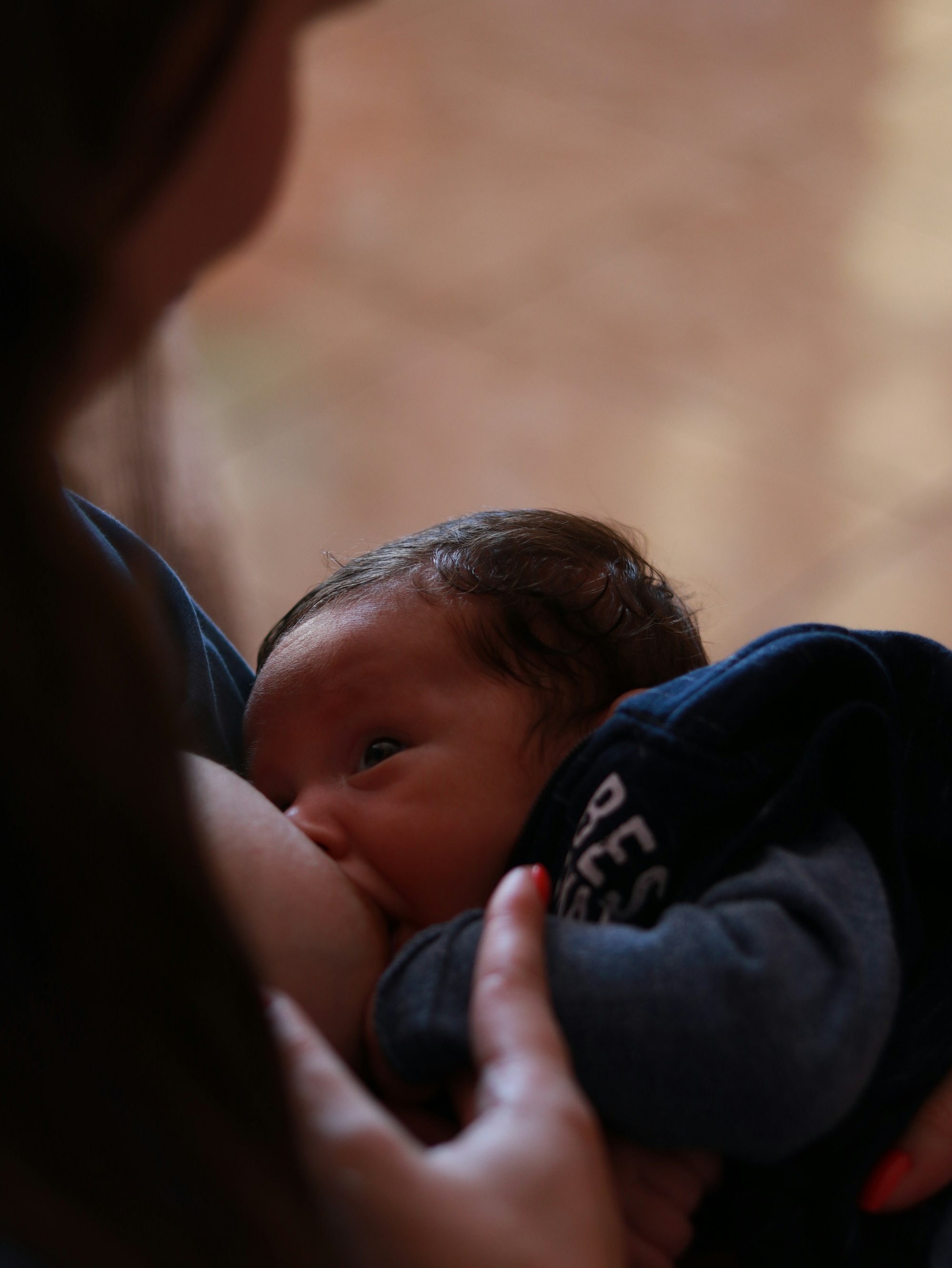Eczema of the Areola, Breast, or Nipple
Eczema found on the nipples and breasts of nursing mothers is not uncommon. It usually occurs after a few months of nursing. The mother should be sure first to rule out the possibility of thrush.

Should I still breastfeed if I have Eczema on my nipples?
Yes, you can continue breastfeeding; it is entirely safe for your baby. In most cases, Eczema can be managed successfully, so symptoms decrease, and breastfeeding is manageable.
Eczema of the Areola, nipples, and breasts of nursing mothers is not uncommon. It usually occurs after a few months of nursing.
The mother should be sure first to rule out the possibility of thrush. The symptoms of thrush are mentioned here.
The symptoms of Eczema may include itching, burning, and raised red skin (not so much on the nipple itself, but mainly on the areola). The skin usually first shows tiny fluid-filled blisters, which then crust over. The skin may seem weepy or crusty.
Some things might decrease the severity and symptoms. Steroid creams are often used for Eczema of the nipples and areola. Be sure to let your doctor or midwife know that you are nursing before they prescribe a cream. Most creams are compatible with breastfeeding if applied immediately after breastfeeding and wiped off again before the next nursing session. You might want to ask your midwife to culture your breast before prescribing a cream; this would be a good idea because Staphylococcus aureus could also cause skin irritation.

The Tushbaby Hip Carrier
With its ergonomic design and comfortable waistband, Tushbaby provides optimal support for you and your baby. Say goodbye to shoulder and back pain from traditional carriers, as Tushbaby evenly distributes your baby's weight, relieving strain and promoting better posture.
Causes of Eczema & Eczema Control Tips
Use as little soap or no soap when washing your nipples. All you need is a little water to rinse them. The Montgomery glands on the areola secrete a substance that keeps your nipples clean and hydrated. Montgomery glands' oily secretion contains antimicrobial factors that help prevent germs from growing.
- Keep your nipples dry by replacing any nursing pads often. Some brands of disposable breast pads may irritate.
- Use natural laundry detergents and avoid the use of perfume. Keep your clothes away from bleach.
- Stress is a massive trigger for Eczema on the nipples. I know this is not easy to control, but keep this in mind.
- Your diet has a role to play. You may be experiencing an allergic reaction to a specific food. Dairy and sugar are common allergens. Gluten sensitivity can also lead to skin issues.
- Get your Iron levels tested. Your body is better equipped to heal when your red blood count and Iron levels are good. Desiccated liver caps are the healthiest source.
- Scratching will worsen symptoms as well as pose an infection risk.
- Avoiding hot showers is recommended. Be mindful of other harmful ingredients in shampoos or soaps while showering. Make your own natural breast milk soap.
- Always rinse off after a swim in chlorinated water.
- Some mothers may be allergic to spandex, latex, and dying agents. All of these can be found in most tops and bras. It's best to switch to organic, untreated, undyed, 100% cotton.
- A family history of Eczema does make a flare-up more likely.
- Using a breast pump on a high suction may damage and irritate the skin, causing the onset of Eczema.
- Some brands of teething gels may trigger Eczema on nipples.
- Some nipple creams and ointments may be the cause. Even Lanolin, the go-to nipple cream for most mothers, can cause some allergic reactions. Lanolin is obtained from the wool of sheep, who are often sprayed with chemicals. Ultra-purified Lanolin is best to use.
- Some Mycostatin formulations used to treat yeast infections may also irritate the skin because they contain preservatives.
- Your baby's sweat may cause a flare-up. Your sweat may also cause issues.
- You may develop eczema symptoms when your baby starts eating solids. This may be due to an allergic reaction to a food substance in the baby's saliva. If this is the case, wiping the baby's mouth out with water before breastfeeding is best.
Natural Treatment Options for Nipple Eczema
- What is the best cream for nipple eczema? Use a non-allergic nipple cream to keep your nipples moisturized. An excellent and natural alternative would be to use Virgin Organic coconut oil.
- Motherlove nipple cream is one of the best natural nipple creams on the market. It is organic and Lanolin free, unscented, and does not need to be removed before nursing. It also contains only clean ingredients.
- The use of nipple shields can be beneficial but should only be used as a last resort. Nipple shields can reduce stimulation at the breast and therefore reduce supply. But, in the end, it is better to have the baby at the breast with a nipple shield than to stop breastfeeding altogether.
Breastfeeding could become arduous if you are not supported and guided during the challenges that may arise. Lack of support could make breastfeeding seem impossible. Don't hesitate to get in touch with your local IBCLC.
After seeing a lactation consultant, you might want to consider pumping exclusively if you still feel that the Eczema is too much to bear.
Extra interesting article
Do breastfeeding or changes to the maternal diet help prevent the development of childhood AD? Atopic dermatitis breastfeeding.
